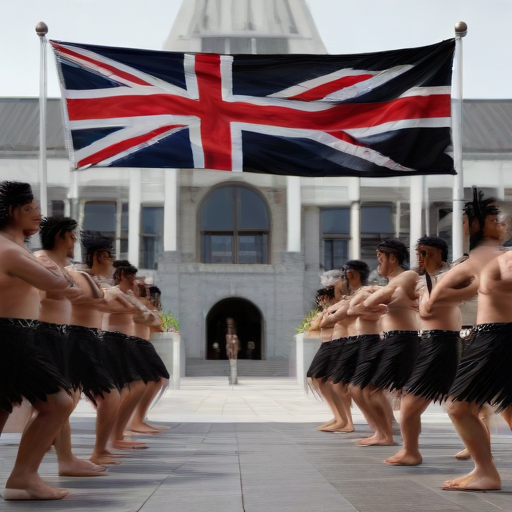New Zealand’s parliament experienced a brief suspension on Thursday due to Maori members performing a haka, a traditional Maori dance, in protest against a proposed bill concerning the reinterpretation of the Treaty of Waitangi. This treaty, signed in 1840 between the British Crown and over 500 Maori chiefs, has long been a foundation for legislative and policy issues regarding governance between the two parties.
The proposed legislation, introduced by the ACT New Zealand party—a junior partner in the ruling center-right coalition—aims to establish a more limited interpretation of the treaty. While historical court rulings and a separate Maori tribunal have progressively advanced Maori rights, there are concerns from some factions that any changes could marginalize non-Indigenous citizens.
As the preliminary vote on the bill approached, members of Te Pati Maori initiated the haka, leading to a disruptive atmosphere where shouts and chants overwhelmed parliamentary proceedings. David Seymour, leader of ACT New Zealand, accused the bill’s opponents of inciting fear and division, asserting that his goal is to empower all individuals.
The proposed legislation is widely viewed by Maori and their supporters as a threat to Indigenous rights in a nation where this group constitutes approximately 20% of the population. In response to the bill, hundreds of protesters embarked on a nine-day hikoi from the northern region to the capital, Wellington, rallying in various cities along the way. In Rotorua alone, around 10,000 participants marched in solidarity, showcasing a vibrant display of cultural pride with traditional clothing and Maori flags.
Although the bill has progressed past its initial reading, its future appears bleak. Coalition partners, including the National Party and New Zealand First, have only supported the legislation during this preliminary stage, indicating they will not back it in subsequent readings. Consequently, the bill is anticipated to fall short of becoming law.
This situation underscores the continuing struggle over Indigenous rights and the significance of the Treaty of Waitangi in New Zealand’s political landscape. The upcoming rally in Wellington, expected to attract tens of thousands, highlights the sustained commitment of Maori people and their allies to advocate for their rights and influence the legislative process.
In a broader context, this event demonstrates the power of peaceful protest and cultural expression in shaping political dialogue and policy reform. The march and protests signify an enduring hope for greater acknowledgment and respect for Maori rights, a critical step toward reconciliation and unity in New Zealand.
